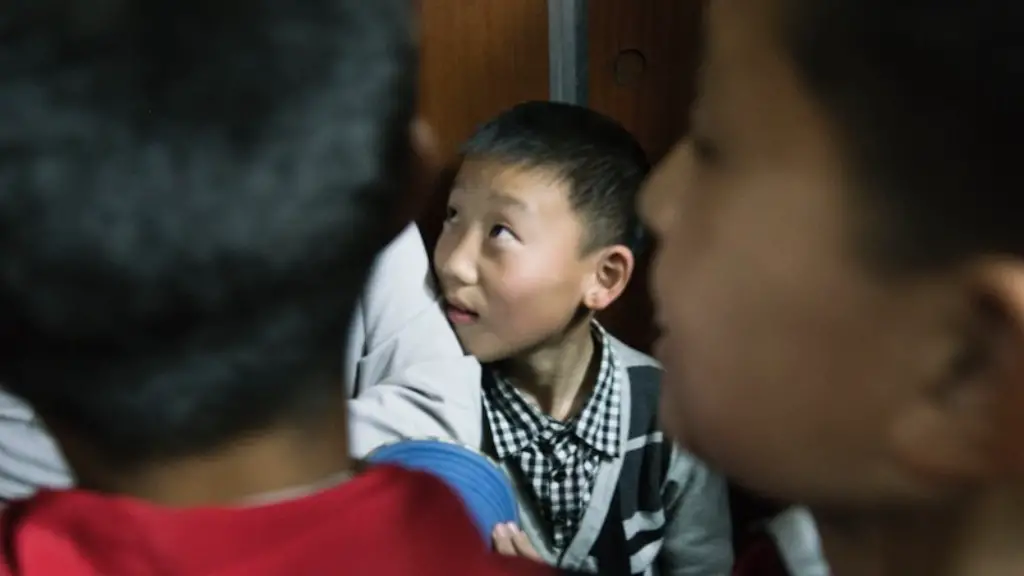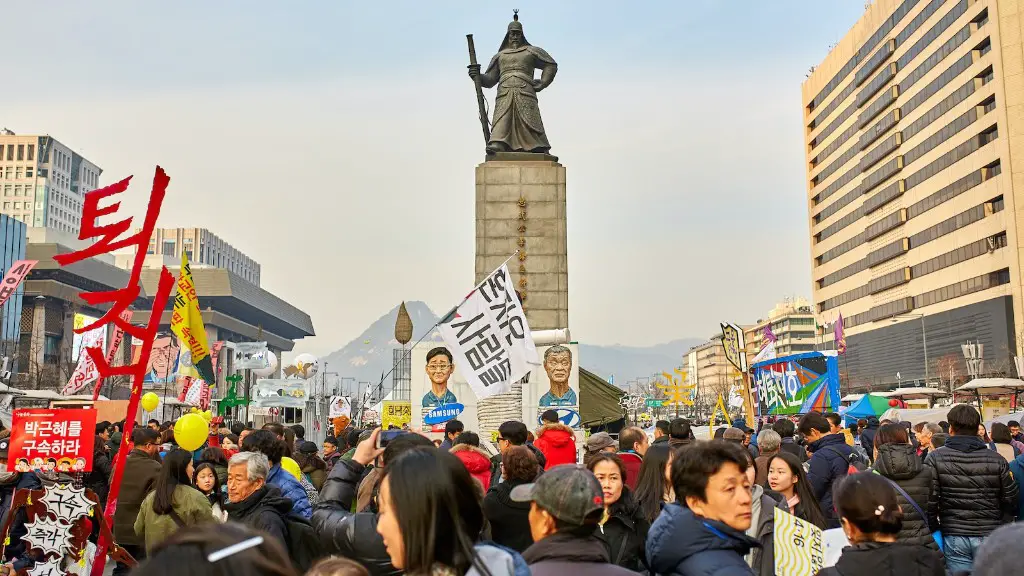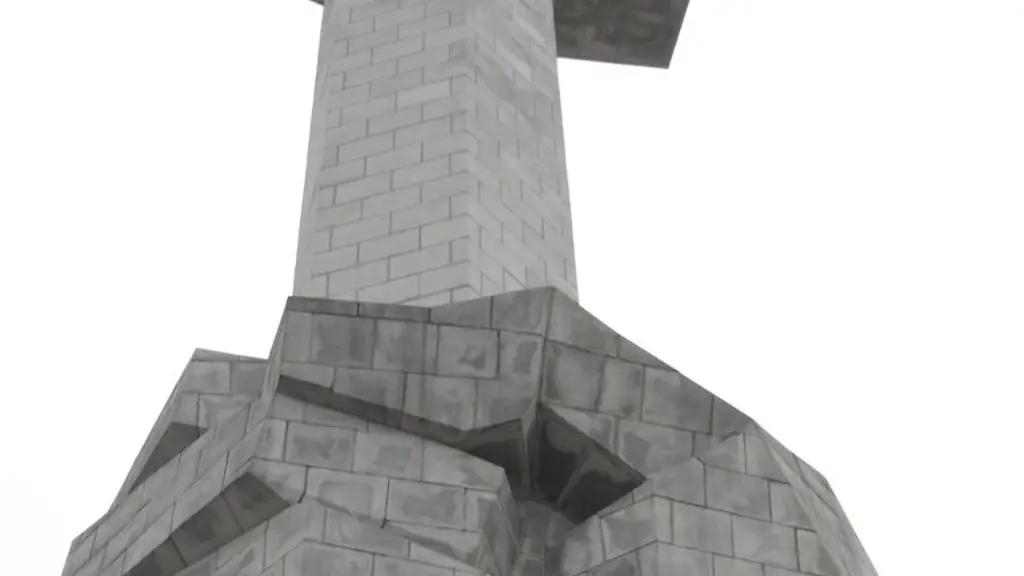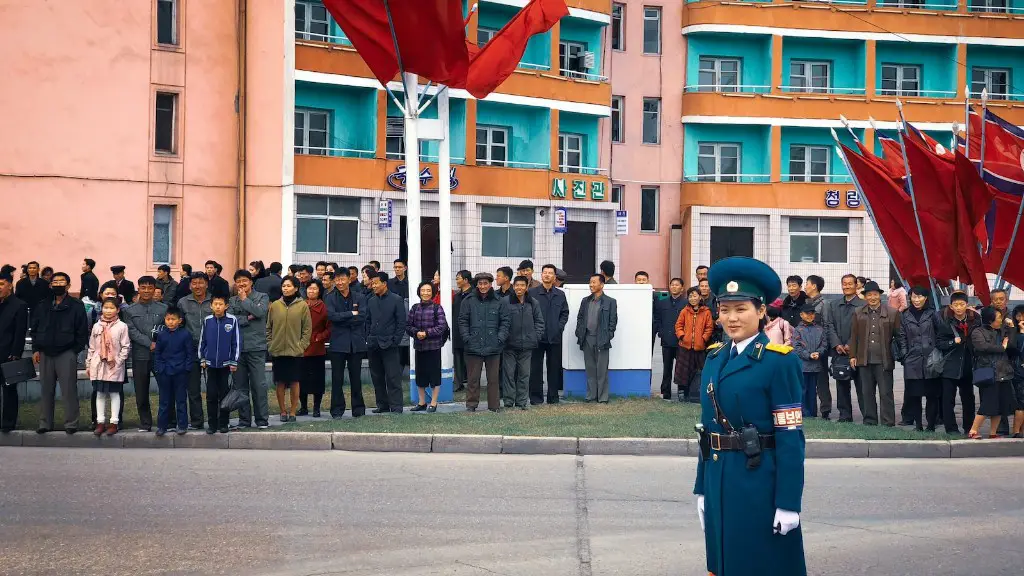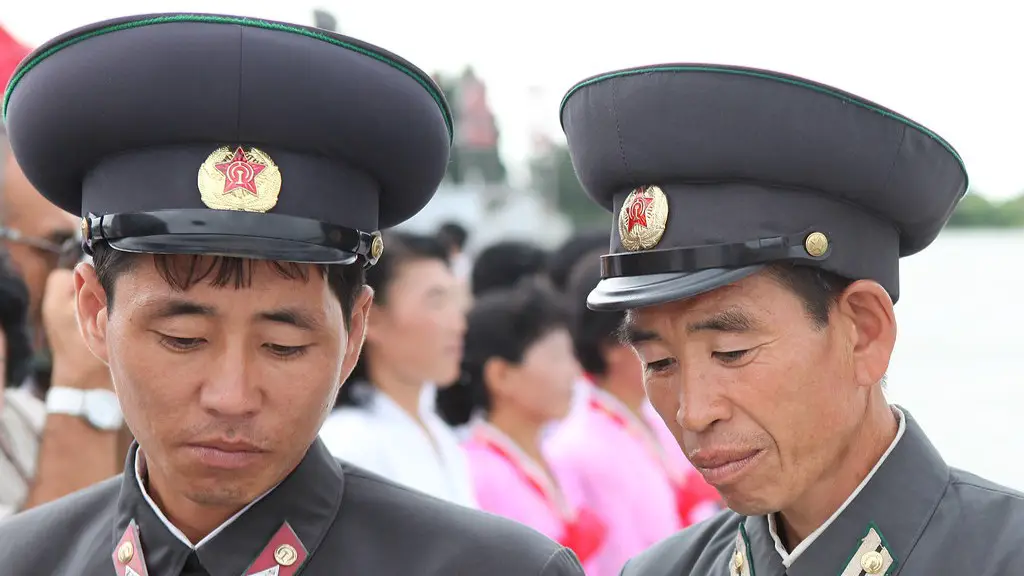Background Information of North Korea
North Korea is an authoritarian state that is ruled by the Kim dynasty. It is widely regarded as one of the most repressive regimes in the world. Its citizens suffer from systematic human rights violations, a lack of political freedom and economic opportunity, and extreme censorship. The government controls virtually all aspects of life, from the media to the economy. North Korea is isolated from most of the international community, with limited diplomatic relationships and few economic ties. Despite its isolation, North Korea has managed to maintain a nuclear weapons program and continues to test missiles of varying ranges and capabilities.
What type of Dictatorship is North Korea
North Korea is a Stalinist dictatorship, which is a type of dictatorship that is characterized by authoritarian rule, a single-party system, a centrally planned economy, and a heavy focus on ideological indoctrination and conformity. North Korea is also a dynastic dictatorship, as it is ruled by the Kim family who have been in power since the country’s founding in 1948. The current leader, Kim Jong-un, is the third in a line of hereditary rulers who have maintained the oppressive Kim dynasty.
The North Korean government exercises complete control over its citizens and maintains a cult of personality around the Kim family. North Korea has no meaningful elections, no separation of powers within the government, and no independent judiciary. Moreover, the government suppresses dissent by way of an intense propaganda campaign, censorship of the media, and use of widespread surveillance. In addition, the state monitors citizens’ behavior and confiscates personal property. Political and religious freedoms are also severely restricted.
The economy in North Korea is highly controlled and heavily dependent on assistance from foreign countries. Much of the government’s revenue comes from the sale of natural resources, such as minerals and seafood. The government has also been known to engage in human trafficking and illegal weapons dealings in order to generate income. In addition, North Korea maintains one of the world’s largest standing armies and has conducted numerous weapon tests, which have been roundly condemned by the international community.
Human Rights in North Korea
North Korea is one of the worst violators of human rights in the world. According to Human Rights Watch, the government represses nearly all civil and political rights. It employs an extensive network of secret police and state-controlled media to maintain control over the population. In addition, the government has committed and continues to commit numerous human rights violations, such as industrial-scale abductions, mass torture, and killings.
Politically motivated arrests and arbitrary imprisonment are common. North Koreans are denied the right to due process, freedom of expression, and freedom of the press. Moreover, they face discrimination based on their political loyalties and affiliations. Furthermore, North Korea regularly engages in lengthy and restrictive surveillance of its citizens, monitoring and controlling their private activities. North Koreans are also denied access to the outside world and denied the right to emigrate.
International Reactions to North Korea
The international community has roundly criticized North Korea’s human rights record and its nuclear weapons program. In 2004, the United Nations Commission of Inquiry on Human Rights in North Korea published a report concluding that the government was responsible for engaging in systematic, widespread, and grave human rights violations. Following the report, the U.N. Security Council adopted Resolution 1718, which imposed sanctions on the country.
Since then, the U.S. and other nations have imposed economic sanctions on North Korea for its continued development of nuclear weapons and other weapons of mass destruction. In addition, many countries have called for the release of all political prisoners and for the government to respect the basic human rights of its citizens.
Efforts to Address Human Rights Abuses
Despite international criticism and sanctions, North Korea has done little to address its human rights record. There have been isolated efforts by the government to engage in dialogue with the international community and to implement reforms. However, these efforts have been largely superficial and seen as an attempt to placate critics. In addition, recently there have been reports of increased restrictions on freedom of expression, including the banning of books and forcing citizens to report suspicious behavior.
The international community has yet to reach any meaningful consensus on how to address the human rights abuses in North Korea. In 2017, the United Nations adopted a resolution calling for the immediate release of all political prisoners and for an end to the state-sanctioned violations. However, so far the government has refused to comply and has taken steps to further repress its citizens.
Role of External Powers
The role of external powers, such as the United States, China, and Russia, in the North Korean situation is significant. The United States maintains a long-standing policy of “strategic patience” in dealing with North Korea, which is a policy of avoiding military confrontation and encouraging diplomatic efforts. In addition, the U.S. has imposed sanctions on North Korea in an effort to curb its nuclear weapons program.
Additionally, the U.S. and its allies are engaging in diplomatic talks with North Korea in an effort to denuclearize the Korean Peninsula. China and Russia, both major trading partners with North Korea, have also called for an end to its nuclear activities. Furthermore, they have sought to encourage dialogue between North Korea and the international community.
Opportunities for Change
Despite its reputation as one of the most oppressive countries in the world, North Korea has recently taken steps that suggest it is open to change. These steps include liberalizing its economy, establishing diplomatic relations with other countries, and re-opening its borders for tourism. In addition, the country recently took part in the 2018 Winter Olympics in South Korea, a gesture seen by many as a sign of openness and willingness to engage in dialogue.
Whether these developments are genuine attempts at change or merely superficial gestures remains to be seen. However, they signal a potential shift in North Korea’s approach and an opportunity for the international community to advance the cause of human rights and peace on the Korean Peninsula.
The Impact of Economic Sanctions
Recent economic sanctions imposed by the United States and its allies have had a devastating effect on the North Korean economy. The sanctions, which are aimed at curbing the country’s nuclear weapons program, have limited the country’s access to hard currency and other resources. As a result, the government has had to make deep cuts in social programs, leading to higher unemployment and poverty among the population.
Furthermore, the sanctions have had a direct effect on the country’s food security situation. North Korea is heavily reliant on international aid in order to feed its population, and the sanctions have limited the country’s access to food, which has further exacerbated the problem. In addition, the sanctions have limited North Korea’s access to essential medical supplies, exacerbating the country’s already dire health care system.
Prospects for the Future
The prospects for the future remain uncertain. It is highly unlikely that the Kim dynasty will give up its grip on power or its pursuit of nuclear weapons. However, it is possible that the Kim regime could be open to compromise if other countries are willing to offer concessions, such as economic aid.
The recent developments and diplomatic outreach suggest that the situation could be on the brink of change. However, it remains to be seen if the current regime is capable or willing to deliver meaningful and lasting change. In the meantime, the international community must keep the pressure on North Korea and continue to hold the Kim regime accountable for its human rights abuses.
